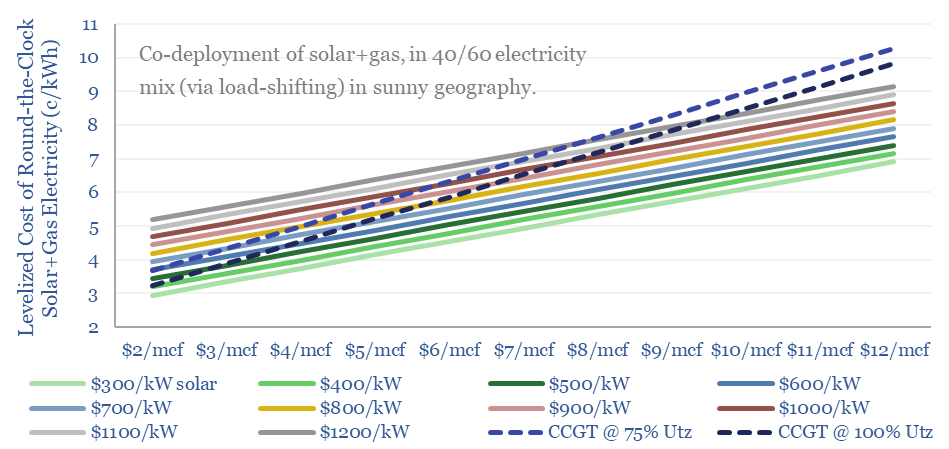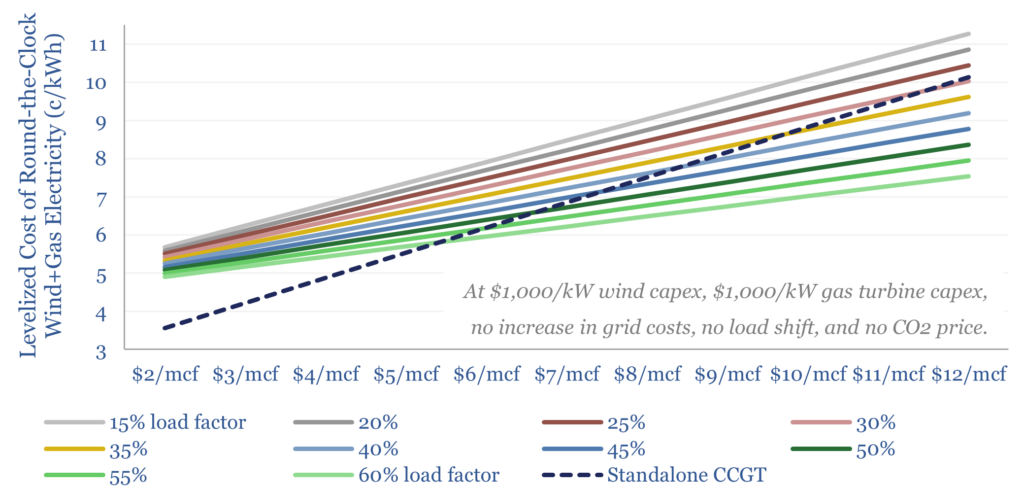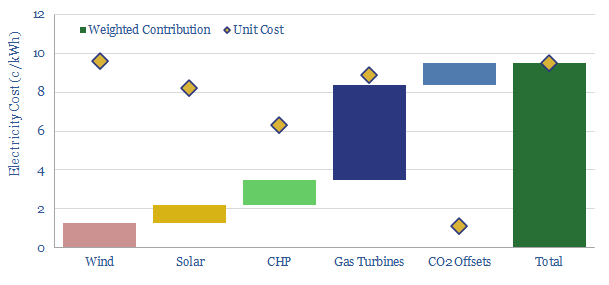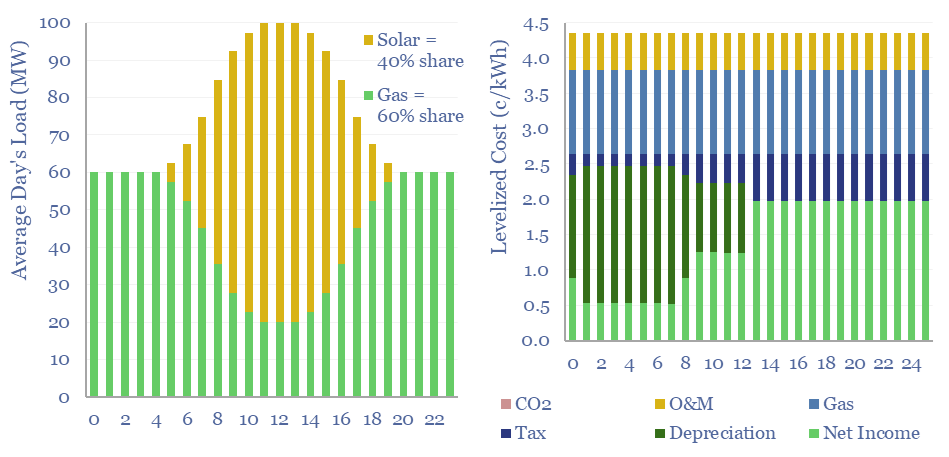Levelized costs of electricity depend as much on the system being electrified as the energy sources used to electrify it. This data-file captures renewables+gas LCOEs (in c/kWh), when meeting different load profiles, as a function of solar capex (in $/kW), wind capex ($/kW) gas prices ($/mcf), and the relative utilization rates.
Levelized costs of electricity are often defined from the perspective of power generation sources, as per our recent note comparing LCOEs and our underlying LCOE database. But there are also conceptual challenges with LCOE. The costs of round-the-clock power can be very different from the costs of intermittent power.
Hence the purpose of this data-file is to model the costs of solar and wind and natural gas CCGTs, and how they might dovetail together, to meet the load requirements of different industrial facilities, ranging from data centers to e-LNG plants.
The first three tabs of the model capture different load profiles, with solar+gas in a 40/60 load-shifting mix, a 20/80 load-shifting mix, and a 30/70 round-the-clock profile. Generally, solar+gas costs are within 1-3 c/kWh of standalone gas costs. However the precise “winner” depends on gas prices and solar capex.

The work highlights the importance of load shifting and increasingly smart energy systems, in order to benefit from continued solar deflation.
The costs of wind plus gas back-ups are captured in two further tabs of the data-file. In Europe for example, wind+gas is cheaper than standalone gas, with a long-term gas price of $9/mcf and providing a wind turbine can achieve an annual load factor above 35-40% (chart below).

Please download the data-file to stress-test solar+gas LCOEs and wind+gas LCOEs as a function of gas prices, solar capex, wind capex, efficiency, CO2 prices, load profiles, opex and tax rates.
The final two backup tabs capture the costs, gross CO2 intensity and nature-based offset requirements from a mixture of wind, solar, CHPs and gas turbines. Following this model could create great potential for an integrated gas and power company, while supplying a complete, zero-carbon energy solution to consumers in the energy transition, generating zero-carbon electricity at 8c/kWh via a combination of wind, solar, gas and NBS.

